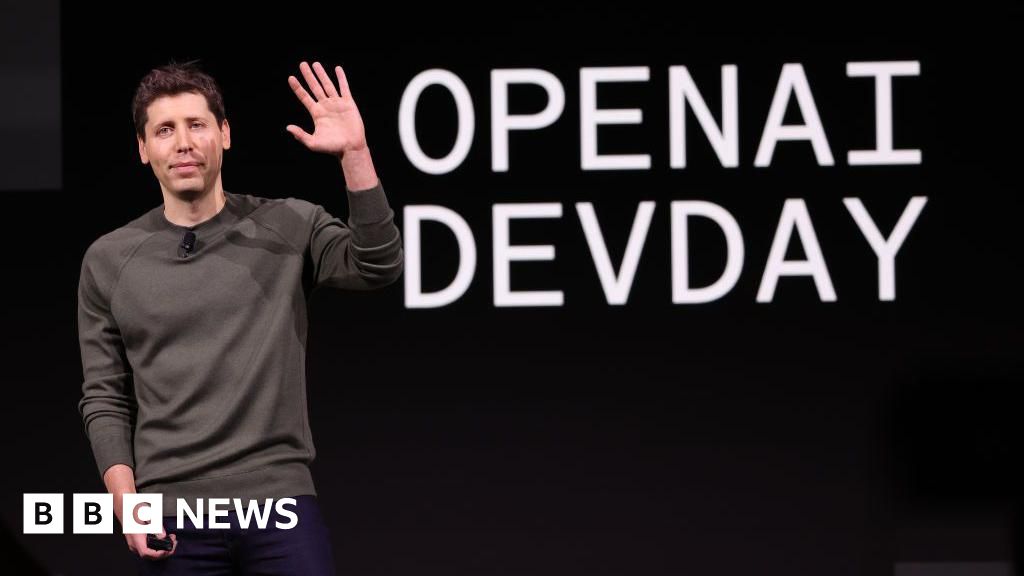OpenAI, the maker of ChatGPT, has raised $6.6bn in its latest funding round, as investors including its early backer Microsoft continue to bet big on artificial intelligence (AI).
The deal gave the tech company a value of $157bn (£118bn) – similar to investment bank Goldman Sachs and more than most of America’s biggest companies – making it one of the most valuable start-ups in the world.
OpenAI said the money would allow it to stay at the cutting edge of AI research.
The influx comes as the company has been in the spotlight, in part for internal leadership drama and debate over its future status.
Chief executive Sam Altman is said to be restructuring the company to become a for-profit entity, stripping it of its non-profit board.
While the company’s transformation has helped attract investors, it has alienated some members of its staff and critics.
Those critics include OpenAI co-founder Elon Musk who departed the firm in 2018. He has said the company has abandoned its founding mission of developing AI for the benefit of humanity.
OpenAI is widely credited with helping bring artificial intelligence tools into the mainstream and sparking a gush of wider investment and interest in the sector.
“The new funding will allow us to double down on our leadership in frontier AI research, increase compute capacity, and continue building tools that help people solve hard problems,” OpenAI said.
Funders in the latest round included investment firm Thrive Capital, Japanese tech conglomerate SoftBank, American chip giant Nvidia, and Microsoft, which already has a large stake in the company.
While the valuation announced Wednesday looked high by normal standards, “these are not normal times,” said Karl Freund, principal analyst at Cambrian AI Research.
“Unless AI is somehow a bust, which I cannot imagine, OpenAI will be a powerful force to be reckoned with.”
OpenAI said it has 250 million weekly active users, as well as one million paying business customers.
The company is on track to generate $3.6bn in revenue. But projected losses of more than $5bn are set to outpace revenue, according to Reuters.
Pressure to quickly rollout new versions of its blockbuster chatbot has also strained relations between OpenAI’s research and safety teams and staff focused on monetising the company’s products, according to reports.
OpenAI has seen an exodus of key executives in the year since Mr Altman was briefly ousted as its top executive in November, with departures including former chief scientist Ilya Sutskever.
Last week, the company’s long-time chief technology officer Mira Murati stepped down, saying in a statement that she had “made the difficult decision to leave” after much reflection.
Two top OpenAI researchers also announced their departures the same day as Murati.





